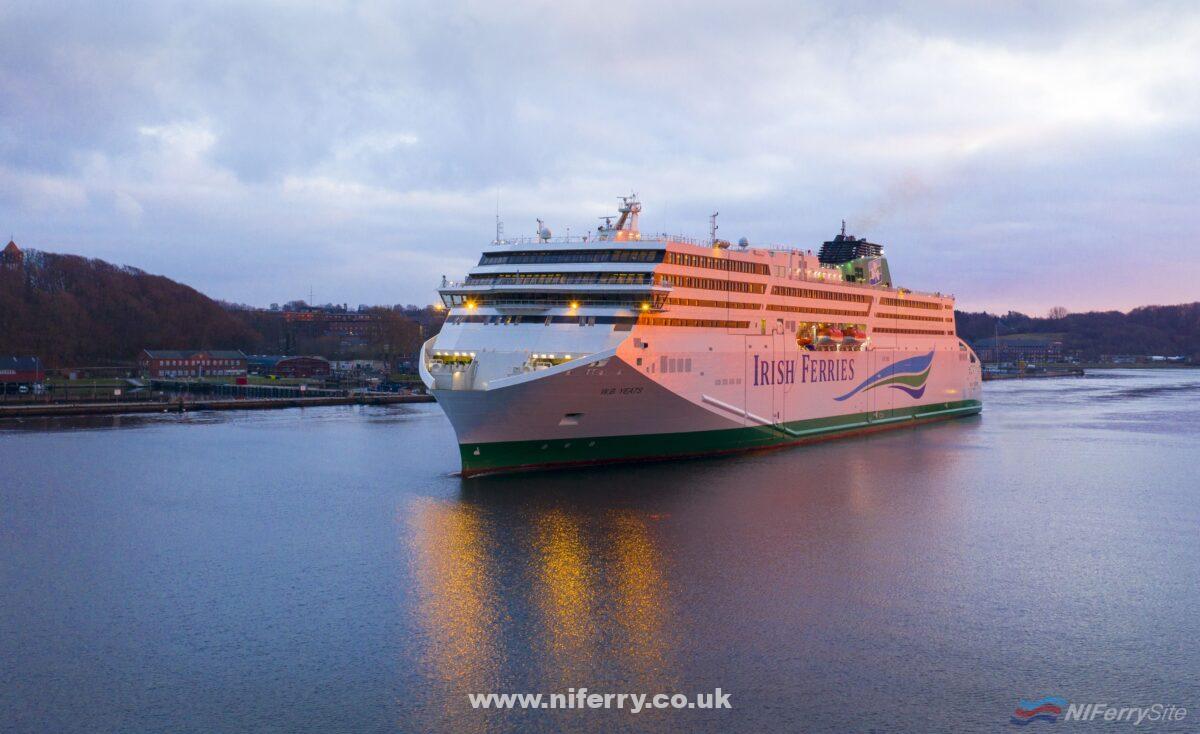Irish Ferries has announced that from tomorrow it will be increasing driver capacity on its direct Ireland – France route. W.B. YEATS will replace EPSILON on the Dublin – Cherbourg route, effectively trebling the number of drivers which can be carried on every sailing.
While EPSILON only has around 70 passenger cabins, W.B. YEATS offers over 400. This means that theoretically Irish Ferries could fill her freight decks with accompanied freight while still offering every driver an individual cabin.
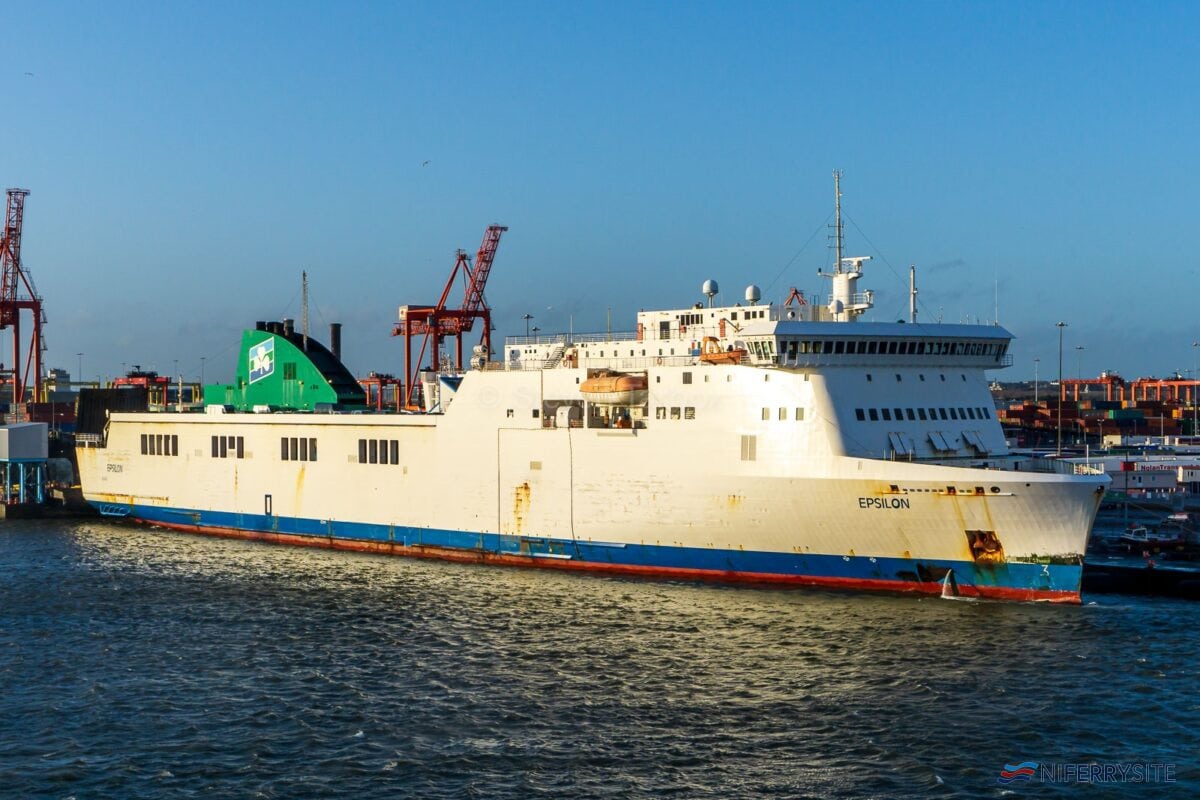
The number of sailings, a total of seven per week, will remain the same. EPSILON, therefore, will transfer to the Dublin – Holyhead route. COVID-19 restrictions mean that passenger demand on that route remains low.
The move comes following the start of DFDS’s new Rosslare – Dunkerque (Dunkirk) route on Jan 2.
The first sailing from Rosslare, operated by OPTIMA SEAWAYS, had 62 accompanied units and three unaccompanied onboard according to the National Secretary General of the CNTPA – CFDT union on LinkedIn. 34 accompanied and 14 unaccompanied units came in the opposite direction onboard VISBY according to the same source.

DFDS CEO Torben Carlsen is quoted by the Financial Times saying that the Rosslare – Dunkirk route needs 40-50,000 freight movements per year to be viable. This is equal to around a third of all movements using Great Britain as a bridge to Continental Europe on an annual basis (often referred to as the “landbridge”).
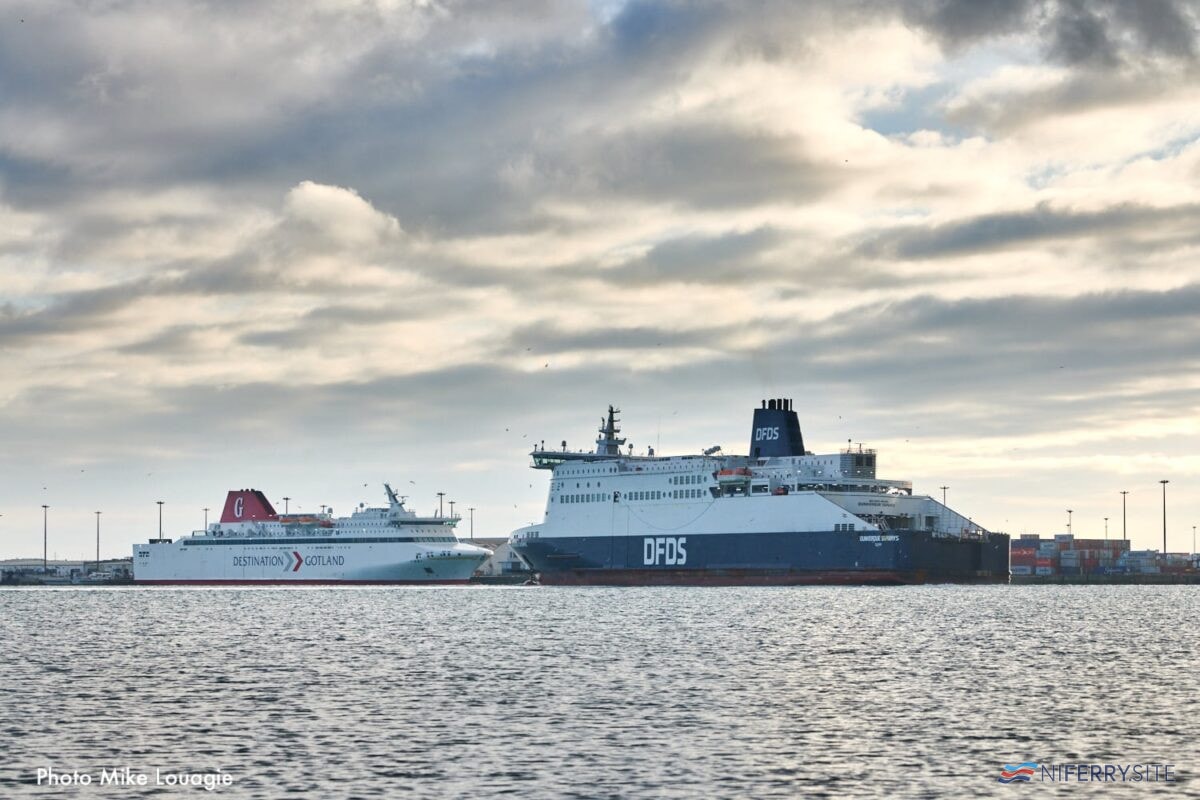
According to the CEO of Irish Ferries parent company, Eamonn Rothwell, the “faster, cheaper” landbridge is here to stay.
In an article in the Irish Times, Mr Rothwell states that 11% of ferry freight traffic uses the landbridge with 9% going direct to the continent. The balance, 80%, is solely between Great Britain and Ireland. Speaking to the Irish Times he said:
“We need to focus more on the 80 per cent of traffic that is moving between the Republic of Ireland and the UK to ensure that this traffic continues to run smoothly and is not clogged up in the short term by overzealous application of new rule books for trading with the UK,”
In his role as CEO of Irish Continental Group, Mr Rothwell also oversees the container shipping company Eucon. That companies services link Belfast, Cork, and Dublin to Antwerp and Rotterdam. The company recently chartered an additional vessel for these services.
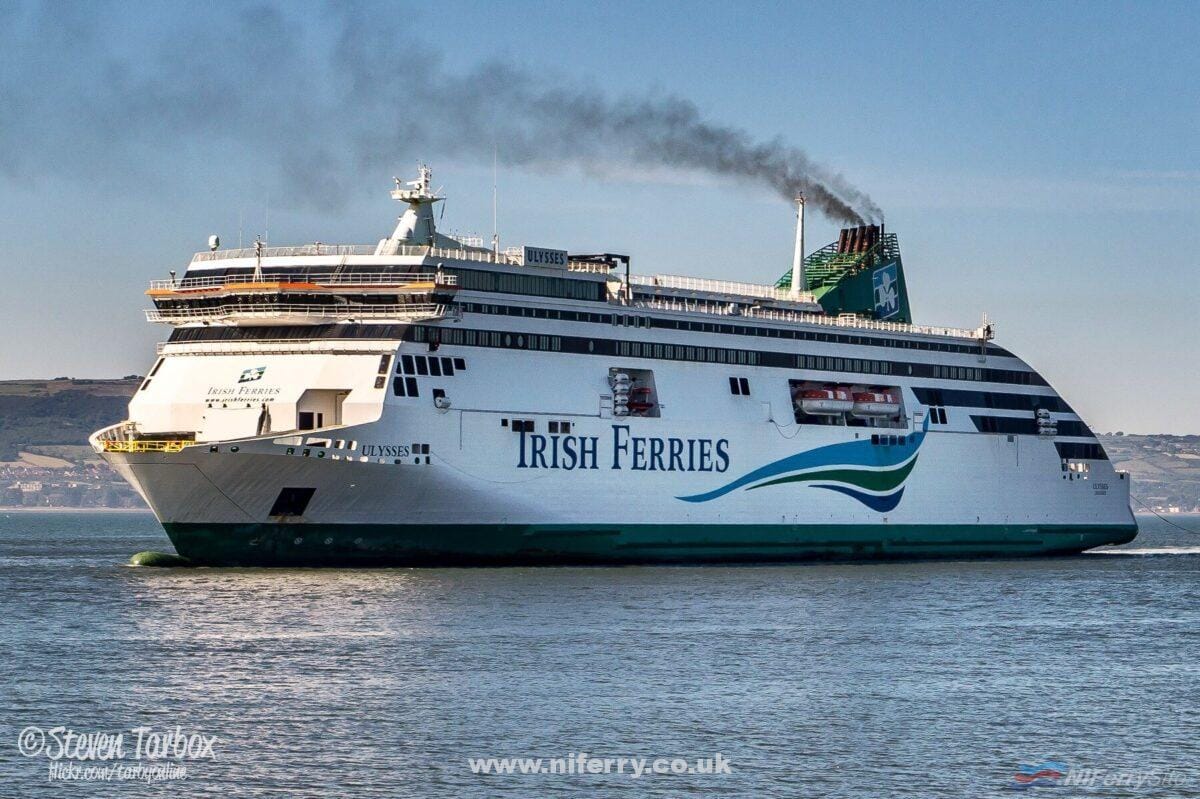
Stena Line also recently increased capacity on its direct route to France. STENA FORETELLER was deployed in addition to the regular vessel STENA HORIZON.
While Foreteller is a Ro-Ro and so only has a very limited driver capacity, her addition allows more accompanied traffic to be carried onboard STENA HORIZON, as unaccompanied trailers can be transferred to Foreteller sailings.
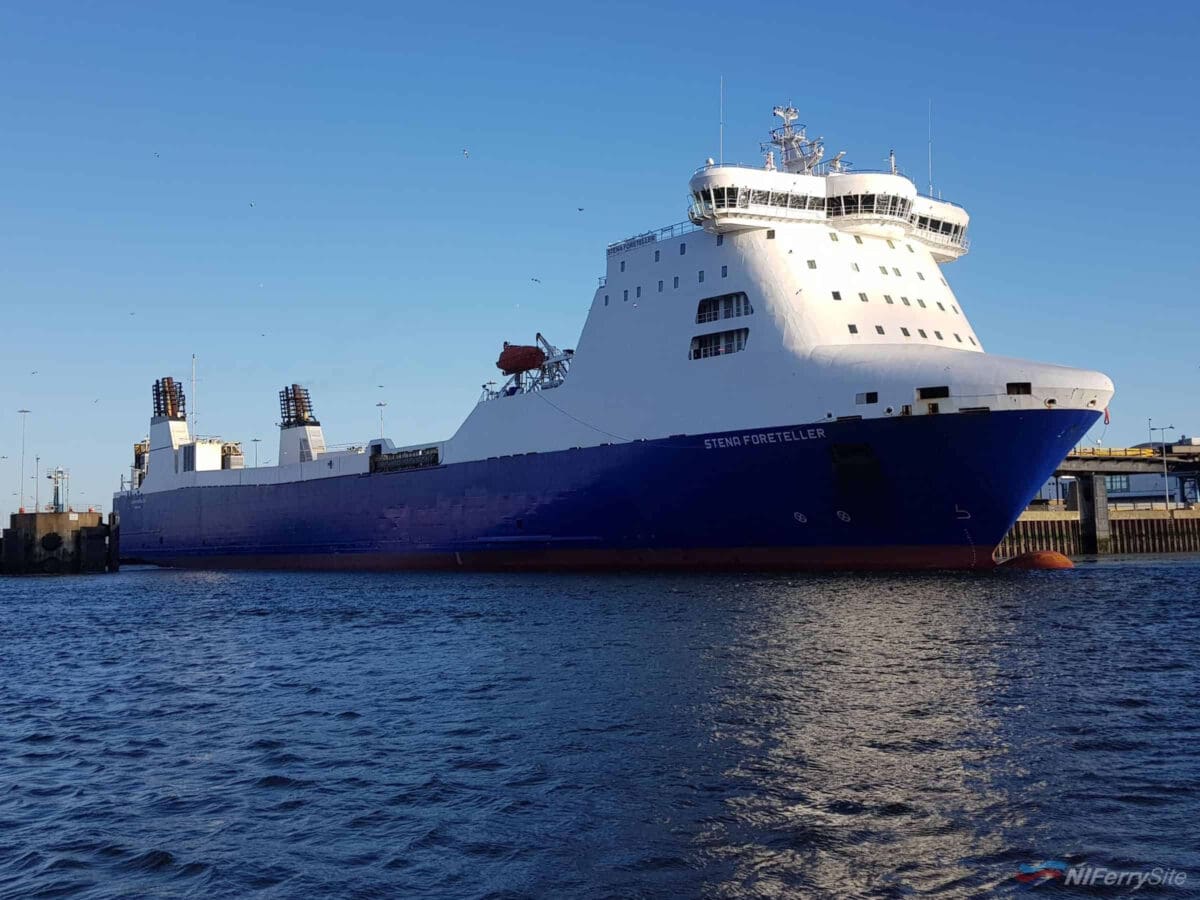
These capacity developments follow a negative COVID-19 test becoming mandatory for all arrivals in France from the UK, and the UK leaving its EU transition arrangements on Dec 31.
The Irish Government has also strongly urged hauliers to give thought to using direct routes, rather than the UK “landbridge”, to minimise potential disruption.
Despite predictions to the contrary, disruption on ferry routes between Great Britain and the EU since Dec 31 has been minimal so far. This is, however, a traditionally very quiet week for freight, and follows widespread stockpiling before the new year.
It is understood that W.B. YEATS will serve the French route for around three weeks from tomorrow. She is then expected to return to the Dublin – Holyhead route to release ULYSSES for dry-docking.
